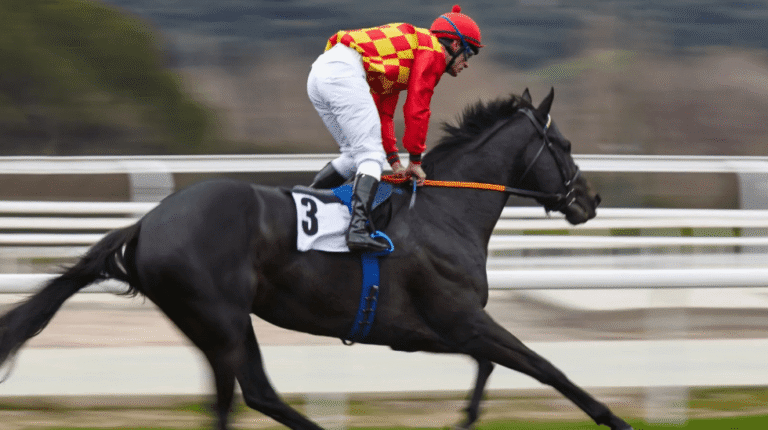When we think about horse racing, the spotlight usually shines on the jockeys guiding their mounts or the trainers preparing horses for competition. But behind every great racehorse, there is an owner—the individual or group who plays a critical role in the horse’s journey from stable to finish line. Owners are often the driving force behind the sport, providing the resources, passion, and vision that make horse racing possible.
This article explores the responsibilities, influence, and significance of horse owners in the world of racing.
1. Financial Backbone of the Sport
Owning a racehorse is not a cheap endeavor. From the purchase price to ongoing costs like training fees, vet bills, transport, and race entry fees, horse ownership requires significant financial commitment.
- Purchase Costs: A racehorse can cost anywhere from a few thousand dollars to millions, depending on bloodlines and potential.
- Upkeep: Monthly expenses can include training ($2,000–$4,000 per month), veterinary care, and boarding fees.
- Entry Fees: Some prestigious races require hefty entry payments to participate.
Without owners willing to invest, horse racing as we know it simply wouldn’t exist.
2. Choosing and Purchasing Horses
Owners are responsible for selecting the horses that will enter their stables. This involves evaluating bloodlines, conformation (physical structure), and pedigree records. Some owners hire bloodstock agents to help them choose the right prospects at auctions or private sales.
- Breeding Choices: Some owners also breed their own horses, investing in mares and stallions with strong pedigrees.
- Auction Investments: Yearling sales and two-year-old sales are common hunting grounds for potential champions.
An owner’s decisions at this stage can determine whether a horse becomes a future winner or never makes it to the track.
3. Partnering with Trainers and Jockeys
Once a horse is purchased, the owner decides which trainer will prepare the horse and often has input on which jockey will ride in races.
- Trainer Selection: Owners look for trainers with strong track records, philosophies that match their goals, and stables that suit their horses’ needs.
- Jockey Selection: While trainers often recommend riders, owners may also influence the decision, especially in high-stakes races.
This partnership is crucial because success in racing is a team effort, and owners are at the center of these decisions.
4. Strategic Decisions and Race Planning
Owners work with trainers to decide which races their horses will enter. This involves strategy, as placing a horse in the right race at the right time can maximize its chances of success.
Factors considered include:
- The horse’s age and maturity.
- Distance preferences (sprinter vs. stayer).
- Track conditions (some horses run better on turf, others on dirt).
- Competition level (graded stakes vs. maiden races).
In major racing events like the Kentucky Derby or Royal Ascot, an owner’s decision-making can make or break a career.
5. Emotional Investment and Rewards
While horse racing can be lucrative, for many owners it’s also about passion. Watching their horse compete, hearing the roar of the crowd, and standing in the winner’s circle are experiences that money alone cannot buy.
The rewards of ownership include:
- Prize money shares.
- Trophies and accolades.
- Breeding rights (for successful stallions and mares).
- The thrill of competing in prestigious races.
The emotional highs and lows of racing are part of what keeps owners dedicated to the sport.
6. Syndicates and Shared Ownership
Not all owners are wealthy individuals. Many racing enthusiasts participate in ownership syndicates, where multiple people share the costs and rewards of owning a horse.
Benefits of syndicate ownership:
- Lower financial risk.
- Shared expenses among members.
- More people experiencing the thrill of racing firsthand.
This model has become increasingly popular, making ownership more accessible to fans.
7. Promoting and Growing the Sport
Owners also serve as ambassadors of horse racing. Their investments help keep trainers, jockeys, grooms, and entire racing industries thriving. Many prominent owners use their influence to:
- Promote racing events.
- Support breeding programs.
- Encourage new fans to get involved.
In this way, owners are not only horse backers but also custodians of the sport’s future.
8. Challenges Owners Face
Despite the glamour, horse ownership comes with challenges:
- High Costs: Few owners actually make a profit.
- Injuries and Uncertainty: Horses may face setbacks or retire early due to injury.
- Competition: The unpredictability of racing means even the most expensive horses may not win.
For owners, resilience and patience are as important as financial resources.
Conclusion
The role of the owner in horse racing is far more than financial—it’s about vision, passion, and stewardship of the sport. Owners are the ones who make critical choices about which horses to buy, who trains and rides them, and where they race. Their investments sustain the industry, while their passion fuels the excitement that makes horse racing beloved worldwide.
In many ways, owners are the unsung heroes of horse racing—working behind the scenes, yet playing one of the most vital roles in turning dreams of victory into reality.
